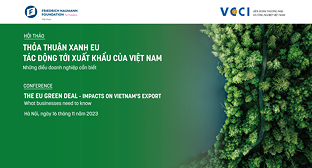India pushes for ‘permissible’ fishery subsidies at WTO
19/02/2020 12:00

Members hold ‘extreme’ positions on exemptions for developing countries
India has made a case for allowing a small and tight ‘green box’ of permissible subsidies for fisheries. Under this, New Delhi wants to include livelihood support for fishermen during the period when fishing is banned and subsidies for navigation and safety equipment.
“We need to bear in mind that fishery subsidies to be implementable should at least impact the large number of subsistence and artisanal fishermen who, in many developing countries like India, get minuscule subsidies and who would be rendered destitute without such support,” read India’s statement at the recent meeting on fishery subsidies at the WTO.
New Delhi wants subsidies for vessel monitoring system as well as equipping boats with navigation and safety equipment to be identified as permissible.
Caps on subsidies
While effort is on at the WTO to conclude an agreement on curbing harmful fishery subsidies at the Ministerial Conference in Kazakhstan in June 2020, members continue to differ on the scope of the agreement and the exemptions to be extended to developing nations. The US, Brazil and Australia want to place subsidy caps on countries with large fish stocks, like India and China, irrespective of their development status.
“A discipline will need to actually constrain the largest subsidisers, not preserve and protect their subsidies forever, under the guise that these subsidies are always green or always good,” the US representative said in a statement at the meeting.
According to some industry estimates, harmful fishery subsidies range from $14 billion to $20.5 billion annually.. Highlighting the importance of retaining special and differential treatment for all developing countries and least developed countries (LDCs), India pointed out that it was to protect the livelihood of artisanal fishermen that leaders agreed to an effective special and differential treatment in SDG (sustainable development goals) 14.6 and our ministers endorsed it in the Buenos Aires Ministerial Conference in December 2017. “Therefore, an effective special and differential treatment for developing countries and LDCs would involve carving out from the disciplines in territorial sea across all the pillars as well as protecting subsidies in Exclusive Economic Zone, except for large-scale industrial fishing. In other words, the discipline should largely target subsidies promoting fishing on the high seas,” the statement affirmed.
Over 30 members gave their statements at the meeting, calling for a compromise so that a pact could be reached at the Kazakhstan Ministerial Conference, according to a Geneva-based trade official.
The chair of the negotiating group on rules, Santiago Wills, said he would need members’ flexibility and pragmatism so that acceptable landing zones could be identified quickly.
Source: The Hindu Business Line
India has made a case for allowing a small and tight ‘green box’ of permissible subsidies for fisheries. Under this, New Delhi wants to include livelihood support for fishermen during the period when fishing is banned and subsidies for navigation and safety equipment.
“We need to bear in mind that fishery subsidies to be implementable should at least impact the large number of subsistence and artisanal fishermen who, in many developing countries like India, get minuscule subsidies and who would be rendered destitute without such support,” read India’s statement at the recent meeting on fishery subsidies at the WTO.
New Delhi wants subsidies for vessel monitoring system as well as equipping boats with navigation and safety equipment to be identified as permissible.
Caps on subsidies
While effort is on at the WTO to conclude an agreement on curbing harmful fishery subsidies at the Ministerial Conference in Kazakhstan in June 2020, members continue to differ on the scope of the agreement and the exemptions to be extended to developing nations. The US, Brazil and Australia want to place subsidy caps on countries with large fish stocks, like India and China, irrespective of their development status.
“A discipline will need to actually constrain the largest subsidisers, not preserve and protect their subsidies forever, under the guise that these subsidies are always green or always good,” the US representative said in a statement at the meeting.
According to some industry estimates, harmful fishery subsidies range from $14 billion to $20.5 billion annually.. Highlighting the importance of retaining special and differential treatment for all developing countries and least developed countries (LDCs), India pointed out that it was to protect the livelihood of artisanal fishermen that leaders agreed to an effective special and differential treatment in SDG (sustainable development goals) 14.6 and our ministers endorsed it in the Buenos Aires Ministerial Conference in December 2017. “Therefore, an effective special and differential treatment for developing countries and LDCs would involve carving out from the disciplines in territorial sea across all the pillars as well as protecting subsidies in Exclusive Economic Zone, except for large-scale industrial fishing. In other words, the discipline should largely target subsidies promoting fishing on the high seas,” the statement affirmed.
Over 30 members gave their statements at the meeting, calling for a compromise so that a pact could be reached at the Kazakhstan Ministerial Conference, according to a Geneva-based trade official.
The chair of the negotiating group on rules, Santiago Wills, said he would need members’ flexibility and pragmatism so that acceptable landing zones could be identified quickly.
Source: The Hindu Business Line
Các tin khác
- Find opportunities in niche markets to increase exports (15/04/2024)
- US extends conclusion on tax evasion probe into Vietnamese wooden cabinets (15/04/2024)
- Italy remains Vietnam's largest iron and steel import market (15/04/2024)
- Does the EU have what it takes to fight China on green tech? (15/04/2024)
- Not enough evidence to investigate Chinese HRC: businesses (15/04/2024)
 Home
Home
 About Us
About Us




















